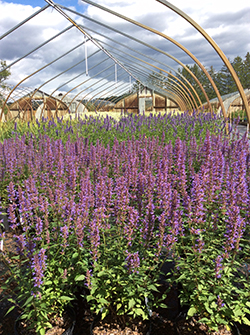Prior to regulations changes in November of 2001, only those private applicators using restricted use pesticides were required to be certified and licensed. The regulations require agricultural producers using either general or restricted use pesticides to become licensed. Those only using general use pesticides to produce an agricultural commodity had 2 years (until November 19, 2003) to obtain licensing to comply.
This post is an excerpt adapted from Rutgers NJAES Pesticide Safety Education Program (PSEP) webpage at https://pestmanagement.rutgers.edu/pat/certlicensreq/. Please contact Pat Hastings at 848-932-0176 if you have any questions. 
Private Applicator – Any person who uses, or supervises the use, of pesticides for the purpose of raising an agricultural commodity. The pesticide use can be on land owned or rented by the applicator or the applicator’s employer. Examples of private applicators are dairy farmers, vegetable or fruit growers, greenhouse growers, ranchers, nurserymen, and home gardeners.
Commercial Applicator – Any person who uses or supervises the use of any pesticide for any purpose or on any property, other than as provided by the definition of “private pesticide applicator.” Most people who apply pesticides as part of their job, or on a for-hire basis need to be licensed as a Commercial Pesticide Applicator. Any person who uses or supervises the use of pesticides on property other than their own (whether or not money is exchanged). Also, any person who applies pesticides as part of his or her job with any government agency.
Examples of commercial applicators are those who apply pesticides as part of their work as exterminators; landscapers; tree services; aerial applicators; weed control firms; pet groomers; apartments, motels, nursing homes, restaurants, etc. who do their own pest control work; and government agencies such as mosquito extermination commissions, public school systems, Departments of Public Works, Departments of Health, etc.
If you are not sure whether you are classified as a private or commercial applicator, visit the NJDEP website or contact the Bureau of Pesticide Compliance & Enforcement.
Certification Versus Licensing
New Jersey requires all applicators (both private and commercial) using restricted use or general use pesticides to become both certified and licensed. The certification and licensing processes differ for Private Pesticide Applicators versus Commercial Pesticide Applicators. Each are outlined individually below.
In New Jersey, those persons licensed to apply pesticides only under the direct supervision of a commercial pesticide applicator are called Commercial Pesticide Operators. These persons are required to be licensed but not certified. Thus, operators need not take or pass a certification exam such as that required of applicators. The licensing process for Commercial Pesticide Operators is also outlined below.
Private Pesticide Applicator Certification and Licensing
Agricultural producers using either general or restricted use pesticides must be certified and licensed as ‘private’ applicators unless they meet specific exemptions.
Under the State pesticide code, exemptions to the requirement of licensing for private applicators include:
- applicators who use ‘minimum risk‘ pesticides only (those defined by EPA as exempt from registration and reporting under FIFRA).
- applicators who use general use pesticides to produce an agricultural commodity or commodities with gross annual receipts of less than $2,500.
- persons applying pesticides under the direct supervision of a licensed private applicator.
- commercial applicators licensed in a category covering the subject matter content required of private pesticide applicators.
Certification as a private applicator is accomplished by successfully passing the NJDEP ‘Private Applicator Exam’, based on the corresponding training manual available for order online or pickup at County Extension offices. Directions on how to obtain the manual are specified in this website’s listing of New Jersey Pesticide Applicator Manuals.
There continues to be no specific training requirements (with the exception of manual study) for private applicators.
For those seeking to become licensed Private applicators, please see this website’s New Jersey Pesticide Applicator Certification Exams. It provides information on accessing the Rutgers NJAES Pesticide Applicator Certification Exam Registrtion website and services to sit for an exam.
The NJDEP posts your Exam results on their website. Once you pass the Private Applicator exam, you become a certified Private Applicator. Shortly thereafter, applicators receive an ‘invoice’ to complete as an application for a license; there are no licensing fees for Private Pesticide Applicators. The Private Pesticide Applicator’s license is valid for five years beginning the first November following applicator certification.
Private applicators are required to maintain their certification by attending courses awarding recertification credits in CORE and ‘PP2’. Specifically, private applicators must complete a total of 8 CORE and 16 ‘PP2’ credits within five years beginning the first November following applicator certification. See the Recertification Course webpage for how to locate available courses.